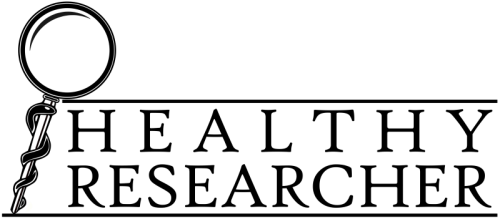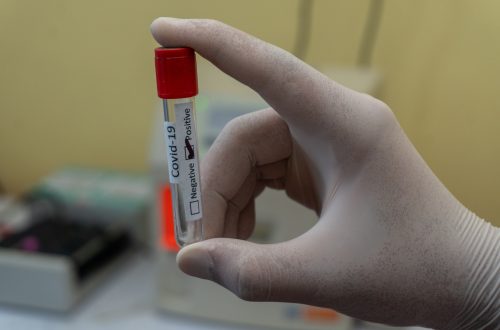It seems sensible to outsource at least some of our thinking on various topics to experts that, in many cases, have devoted their entire lives to acquiring wisdom on a subject at hand.
Written by HealthyResearcher.com
Thinking for yourself is often touted as a virtue, but how appropriate is it really? After all, in the grand scheme of things, there’s a boundless universe of potential knowledge, and we ourselves each grasp but a thin sliver of all that’s knowable. Theoretically, the more facts and data we have to assist us, the better our decision making can be. Therefore, it seems sensible to outsource at least some of our thinking on various topics to experts that, in many cases, have devoted their entire lives to acquiring wisdom on a subject at hand.
For instance, I trust my mechanic knows more about fixing cars than I do, so I may let them make decisions about how to fix my car. Similarly, I trust that the years of medical training and practice my doctor has undergone has made them more knowledgeable on the subject of the human body and health than I overall, so I may choose follow their medical advice.
And yet, while we can relinquish the decisions that affect us to someone else, we can’t avoid our responsibility for the outcome of those decisions. I might allow a mechanic to make the choices around how to repair my vehicle, but ultimately I’m the one who has to drive it afterwards. Similarly, when it comes to my health, a doctor can offer their choice of lifestyle recommendations and prescriptions, but I must live with the health consequences of those decisions if I choose to follow them. In both instances, if the wrong decisions are made and the job isn’t done right, I bare the brunt of the cost. Sure, I could seek restitution from the mechanic or doctor if harm should arise, maybe sue them, but I could never undo what happened. So, at the very least, it seems unavoidable that a decision about who to trust must be made.
Luckily, we have the wisdom of a world of experts available to us at our fingertips at any time through the internet. Often though, they hold contradictory views. Many may not be so wise. How then do we know who to trust? Should our default position be to listen to those in positions of authority?
The assumption with taking that position would seem to be that those in authority have always obtained their status through meritocracy and by their virtuosity and righteousness. However, we know corruption is abound in the world. Politics, which runs its tentacles through nearly all facets of life in modern society, can be a dirty game.
Mainstream media is controlled by a select number of conglomerates and tends to have a political bias characterized as being left leaning. They often get government subsidies and funding, such as in the case of the Canadian Broadcasting Corporation (CBC). How likely are they to be impartial on topics involving the government if the government is paying their bills?
Academics aren’t impartial to politics and government influence either. They too are often subsidized through student loans and grants, and tend to have political leanings characterized as leftist. That’s not to mention another issue within academia known as the The Replication Crisis, which is the rampant irreproducibility of countless published scientific findings across several fields, throwing them into question.
Even your healthcare is largely subsidized by the government, particularly if you live in places with socialized medicine, like Canada, the United Kingdom, or Australia. It’s especially easy to see the influence of governments across the world on healthcare following the declaration of the Covid pandemic by the world’s health authorities.
As the old adage goes, “one doesn’t bite the hand that feeds them.” Expecting experts that hold positions of authority with ties to government to be paragons of impartiality, self awareness, and virtue, and to not show any sort of political bias in their decision making ever, whether conscious or unconscious, doesn’t seem reasonable. That’s not to automatically discredit the authorities, but it’s important to remember their biases and not fall victim to mere appeals to authority.
For better or worse, there are people seeking to appear as experts to manipulate you all the time. A company trying to sell you something is probably claiming expertise in solving a particular problem. Even when you try to research a topic online, depending on your choice of search engine, whether Google, or Yahoo, etc., you’ll be provided with the results that those search engines want you to see at the top. Apart from sponsored listings, there’s reason to believe the results may be manipulated to push or suppress certain viewpoints or topics. The algorithms behind the ranking of search results on the various platforms are far from clear. An entire industry exists to try and understand and manipulate these algorithms for benefit, called “SEO Optimization”. At the very least, a savvy researcher should be aware that the display of results they’re seeing on one search engine or another may not be completely impartial.
It’s likely no one will ever have your best interest in mind better than you do. It almost goes without saying, but generally speaking, nobody will have to deal with the consequences of your personal life choices as much as you. Even if they did, it’s unlikely that they’d understand your needs and desires as well as you do, which is important when it comes to making decisions.
Also, it might seem obvious, but experts are wrong sometimes. A scientific consensus doesn’t mean that the science is settled. The truth isn’t settled by democratic vote. Every so often the science textbooks must be rewritten. For decades, scientific experts denied the unhealthiness of smoking. Experts once recommended blood letting and using leeches to cure disease. Experts identified people as witches and burned them at the stake. It shouldn’t discredit the methodology of science that most people think differently today, but instead encourage you to hold some skepticism about the advice you receive from so called experts and remember not to fall victim to appeals to the majority.
To pick the right people to trust, and even be able to evaluate ideas for yourself, it’s necessary to know how to think critically, logically, and scientifically. You’re not going to be an expert in all fields, but if you train yourself how to think, you’ll be able to evaluate the information people present you with for yourself on some level none the less. Logic is universal and isn’t bound by discipline. It may help, but you don’t need to have a degree, or even any field specific training, to spot a logical inconsistency and contradiction in someone’s argument. In fact, years of formal schooling can indoctrinate someone so deeply in a particular way of thought that they become blind to obvious or simple truths. That’s why children, who aren’t as acculturated as adults, are so often able to communicate the truth about things that we adults can’t see, or willfully avoid. Field specific knowledge and expertise can be invaluable, but the lack of it doesn’t necessarily preclude you from making a logical choice by evaluating the consistency of a proposed idea or establishing an expert’s credibility.
So in summary, even if you outsource your decisions to experts, you’re responsible for the consequences. Not every expert is going to know or even want your best interest, so it probably won’t hurt to keep your wits about you and engage in some critical thinking. Make sure you’re trusting the right people and not merely following blind appeals to authorities or majorities.








